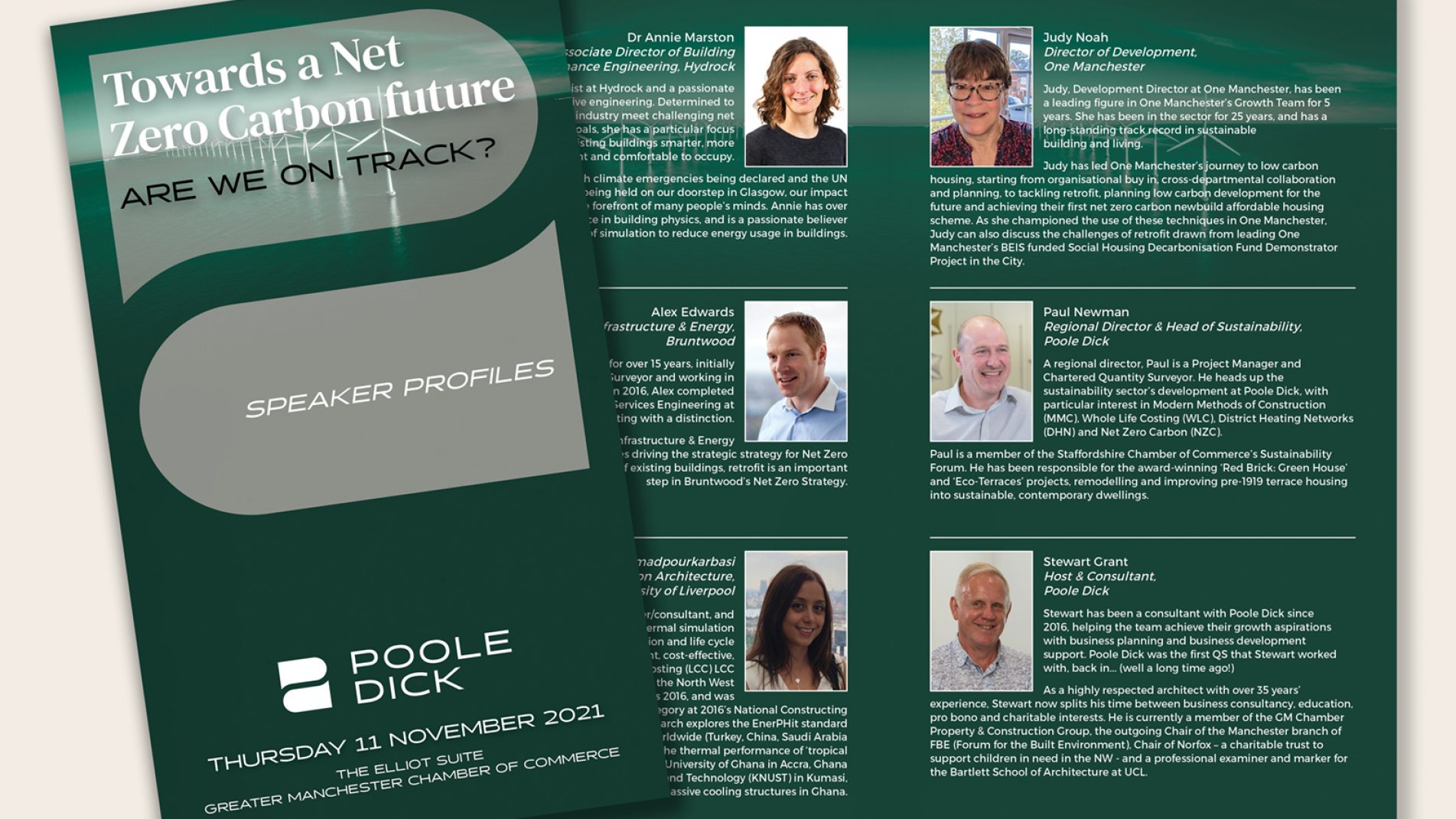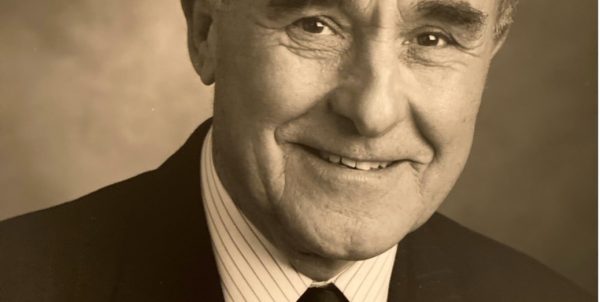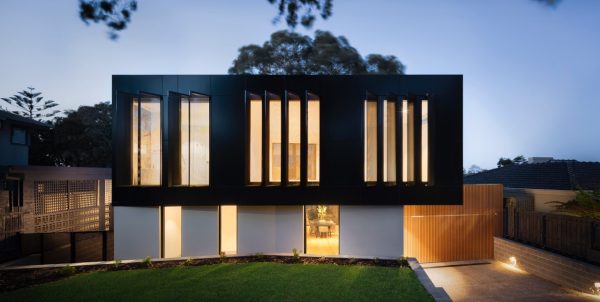Fantastic to see so many people at our net zero carbon event in Manchester!
‘Towards a Net Zero Carbon future – are we on track?’, Thursday 11 November
What a brilliant turnout for our net zero carbon event in Manchester! At a time when sustainability is high on the agenda at COP26, it was great to see so much interest in our live in-person debate.
Manchester Chamber of Commerce played host to an audience keen to hear from our expert panel on the topic of ‘Towards a Net Zero Carbon future – are we on track?’. Our breakfast event also provided an ideal opportunity for some much-needed networking on the day. With around 80 attendees arriving for the breakfast reception, our event also recorded around a 75% turnout!
Hosted by Stewart Grant, the key speakers debating this subject included: Annie Marston Ph.D, LEED AP, Haniyeh M Karbasi, Judy Noah, Alex Edwards and Paul Newman.
A recurrent theme on the day was how keen everyone is for wider collaboration, pooling of knowledge and experience across sectors.
Kicking off with the below, the debate focussed on retrofit and posed a number of questions around key discussion areas. Just a few of these discussed include the below. Interested in the responses? Watch this space for our event podcast.
The Journey
As a landlord, where is One Manchester on the journey to Net Zero? What goals have you set yourself?
Similarly, what priorities have Bruntwood set to deal with your existing stock and how are you tackling them?
To Annie from Hydrock, as a consultant, how do you go about advising landlord developers and occupiers where the best place to start their decarbonisation journey is?
To Paul from our team here at Poole Dick, as a PM/QS, how do you respond to the inevitable question at the outset of a project: “How much is this going to cost?”
And finally, to Haniyeh: “As an academic, how is your R&D work informing solutions that can be used in practice across the property and construction industry?”
People
Fundamental to retrofit is that most of the time, you’re working with existing tenants, occupiers – people. How do you engage with them and get them on the journey?
There’s a lot of focus quite rightly on fabric first, but occupiers’ control most of the energy load/operational carbon in a building. Do we need more incentives or better awareness to encourage smarter energy use?
The Journey
To Paul, the role of a QS is much more than controlling costs nowadays. You talk about the importance of measuring ‘Whole Life Carbon’ from the outset and feeding that into ‘Whole Life Cycle Costs’. Are your clients ready to look at ‘Whole Life Carbon’?
To Judy, how could funding streams be rationalised to make retrofit a more efficient, joined up process?
Best Practice and Innovation
To Judy, what does best practice look like for you currently? What progress are you making with your pilot projects?
To Haniyeh, in your international collaboration and research, what do you think we can learn from others? (Copenhagen has an ambitious plan to become the first net zero capital city by 2025, having already reduced carbon emission by 42% compared to 2005).
Politics and Regulation
To Judy/Alex, what does Govt (at a national or regional level) need to do to give public & private sector the certainty to invest in skills and technology? (What’s happening in the GM Housing Providers Decarbonisation Group/GM Decarbonisation Taskforce)
To Judy, there’s a lot of fog out there. Do we need a more consistent, joined up approach to environmental education, policies and regulation? Is the Retrofit Academy providing this clarity to the Social Housing sector?
And finally…
If you were speaking at COP 26 today? What’s the single most important thing you’d be pushing for to accelerate retrofit delivery?
To the audience, as a result of COP 26 (and today hopefully), hands up those of you whose priorities have changed (ever so slightly) in managing your assessments of assets more sustainably?
Some of the key themes and take-aways of the discussion included the below:
- Requirement for periodic house ‘MOTs’ to check building performance is optimised – Annie
- Consideration to heritage buildings to preserve architectural aesthetic – Haniyeh
- Controls are important to optimise the engineering solutions – Annie
- Collaboration and sharing of data to build on what has been learned – Paul
- Tenant education is key – Judy
- Consider whole life carbon. Embodied and operational carbon are both still carbon! – Paul
- Build on the developing open and collaborative landlord/commercial tenant relationship to look at NZC capital cost sharing – Alex
- Focus on whole life costs, not just on capital costs. Make sure you get best value and effectiveness of interventions – Paul
- Be ‘bid ready’ for government funding schemes – Paul
- Consider mandatory PAS 2035 roles for funding requirements – Paul
- Early contractor engagement will bring benefits
- Energy assessment – understand your starting point, look at data and control and then plan your retrofit
- Funding steams often work against each other
- Suggestion of zero VAT on all retrofit
- Maximise collaboration between academia and industry
- To achieve 80% of what we need to do is good enough – especially if it means it can be afforded i.e., not quite net zero.
In case you missed it, our speaker profile can be found here:



